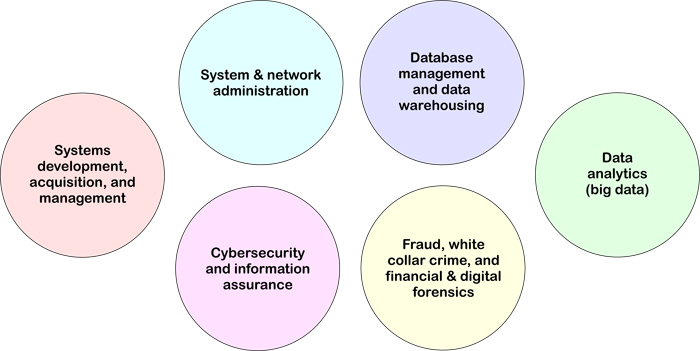MS ISA Programmatic Learning Goals and Objectives
The following program components represent the expected competencies of MS-ISA graduates:
Professional communication skills
All graduates will possess sufficient skills to work effectively in teams and to communicate effectively with managerial and external constituents. These skills encompass oral communication, written communication, and presentations targeted to both technical and non-technical audiences.
Management Breadth
All graduates will possess broad familiarity with core functions common to profit and non-for-profit organizations. That familiarity will span multiple functional disciplines, will enable the graduate to effectively apply technology to solve real-world managerial challenges, and will provide management skills appropriate to leading technically-oriented organizational units. Example managerial functional disciplines include accounting, organizational behavior and design, legal and ethical environment, operations management, marketing, finance, and data-driven decision-making.
Core Management and Technical Competency Skills
All graduates will possess competencies in the following areas: project management, databases and data management, and cybersecurity and information assurance.
Technical Breadth and Depth
All graduates will understand at least one technical specialty area in depth. Some graduates will understand multiple technical specialty areas in depth. Technical depth in one or more areas will enable graduates to serve as experts in the application of one or more technology skills to organizational problems or to effectively manage a technology-oriented subunit within a larger organization. Currently defined technical specialty areas are summarized in Figure 1. These areas are expected to evolve as technology and its organizational applications change over time.

Figure 1. MS ISA technical focus areas.
(Approved by Anderson faculty Fall, 2016)
